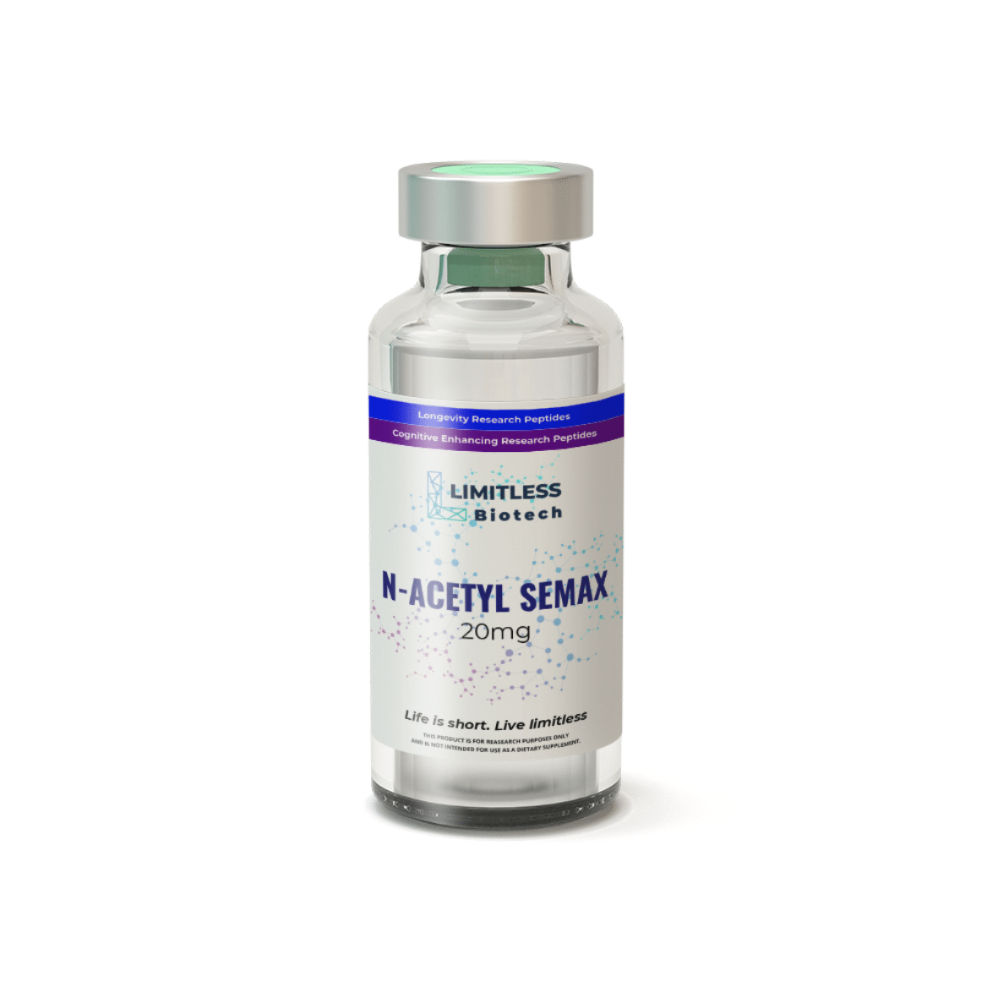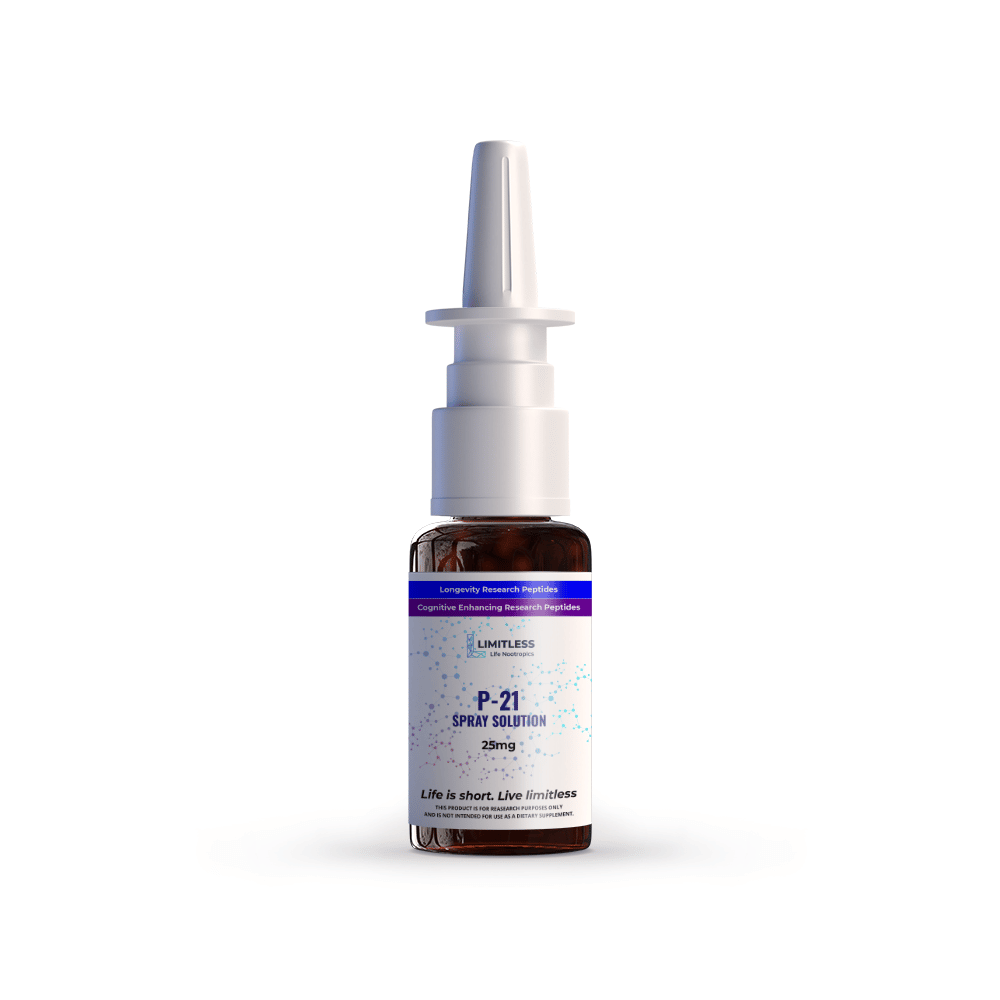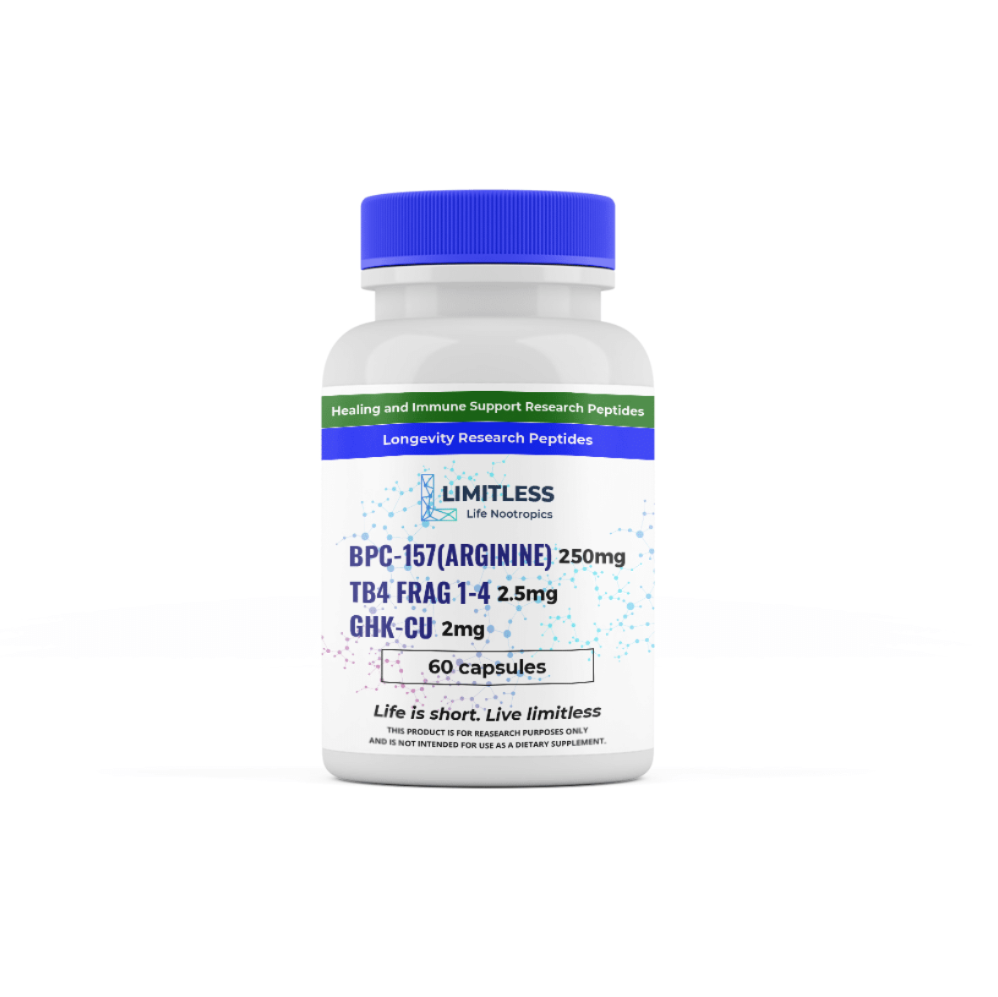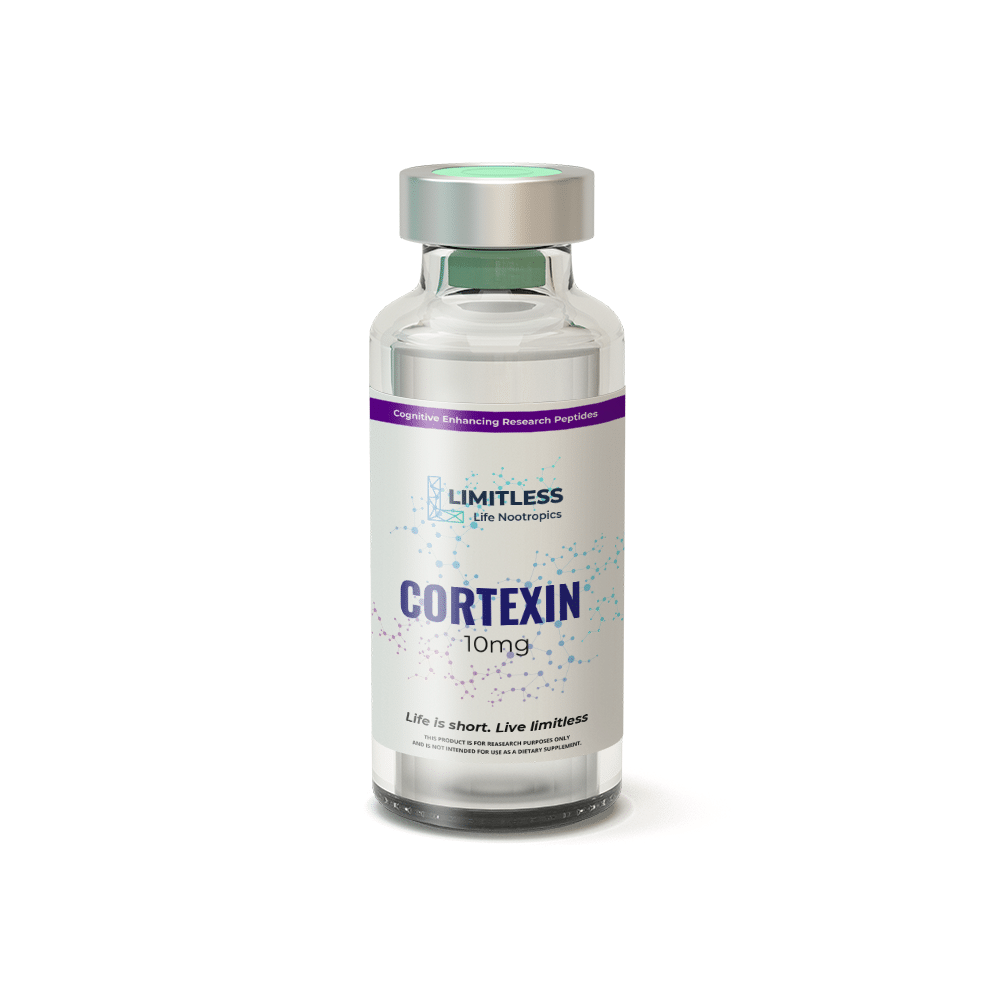Description
N-acetyl semax 30 mg amidate is a synthetic heptapeptide derived from a modified fragment of adrenocorticotropic hormone (ACTH 4–10), designed for improved stability, potency, and bioavailability. With both N-terminal acetylation and C-terminal amidation, this peptide exhibits increased resistance to enzymatic degradation and enhanced penetration of the blood-brain barrier. Its neurotropic and nootropic properties make it an important subject of research in neuroscience and cognitive health.
This 30mg lyophilized formulation provides a stable and highly pure form, ideal for laboratory studies investigating neuroregenerative and cognitive applications.
Benefits of n-acetyl semax 30 mg amidate peptide
Research suggests a broad spectrum of potential effects, including:
-
enhancement of working memory and executive function
-
increased mental clarity and sustained focus
-
reduced neuroinflammation and oxidative stress
-
elevation of mood and emotional regulation
-
improved neurological recovery post-injury
-
stimulation of synaptic plasticity and neurogenesis
These properties have led to widespread interest in semax analogs for studies on brain aging, neurodegeneration, and cognitive resilience.
N-acetyl semax amidate and neuroprotection
Studies in animal models have shown that n-acetyl semax 30 mg amidate offers protection against cerebral ischemia and neural damage through multiple mechanisms. These include suppression of pro-inflammatory genes, activation of neurotransmitter systems, and support of neuronal survival. In models of brain ischemia, semax analogs improved motor coordination, emotional regulation, and restored normal neuromuscular responses.
The peptide has also been shown to modulate expression of neuropeptides and immune system genes, indicating its multifunctional role in central nervous system regulation.
N-acetyl semax amidate and cognitive function
N-acetyl semax 30 mg amidate has demonstrated potential in improving cognitive performance, particularly in tasks involving learning, memory, and attention. Its action is believed to involve the upregulation of neurotrophic factors such as BDNF and interaction with proteins that support synaptic communication and plasticity. Research suggests its use may prevent cognitive decline in hypoxic conditions and facilitate memory retention.
Semax analogs have also been studied for their influence on brain structures such as the basal forebrain, with findings indicating improved cognitive behavior following administration.
Indications and research applications
N-acetyl semax 30 mg amidate is being actively studied for a variety of neurological and psychological applications, including:
-
cognitive decline and memory disorders
-
stroke and ischemic brain injury recovery
-
attention-related impairments
-
chronic fatigue and cognitive burnout
-
neuroinflammatory and neurodegenerative conditions
Its stability and reliable bioactivity make it suitable for in-depth neurocognitive research and experimental models of mental performance.
Buy n-acetyl semax amidate at DN Research
DN Research you can buy n-acetyl semax 30 mg amidate in sterile 30mg lyophilized vials with verified 98.5%+ purity. Each batch is tested via HPLC and packaged to ensure long-term stability and integrity during transport and storage. This product is intended strictly for research purposes and is not for human or veterinary use.
Legal disclaimer
This product is sold as a pure compound for research purposes only and is not intended for use as a dietary supplement. Please refer to our terms and conditions prior to purchase.
Safety information: Keep this product out of the reach of children. This material has limited research available and may result in adverse effects if improperly handled or consumed. This product is not a dietary supplement, but a pure substance, sold as a raw material. We attest exclusively to the quality, purity, and description of the materials we provide. This product is for use and handling only by persons with the knowledge and equipment to safely manage this material. You agree to indemnify DN Research for any adverse effects that may result from improper handling and/or consumption.
The articles and information on products found on this website are provided exclusively for educational and research purposes. These items are not pharmaceuticals or medications, and the Food and Drug Administration has not approved them for the treatment or prevention of any disease or medical condition.




